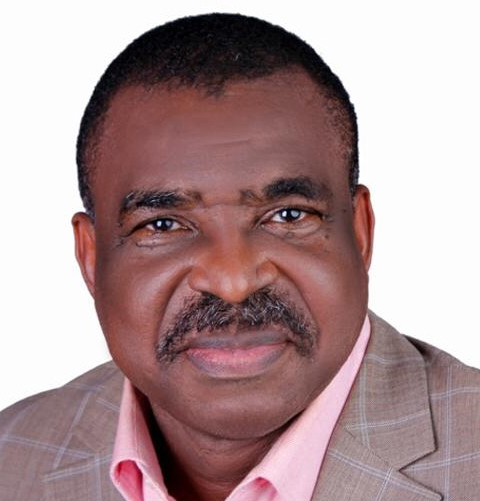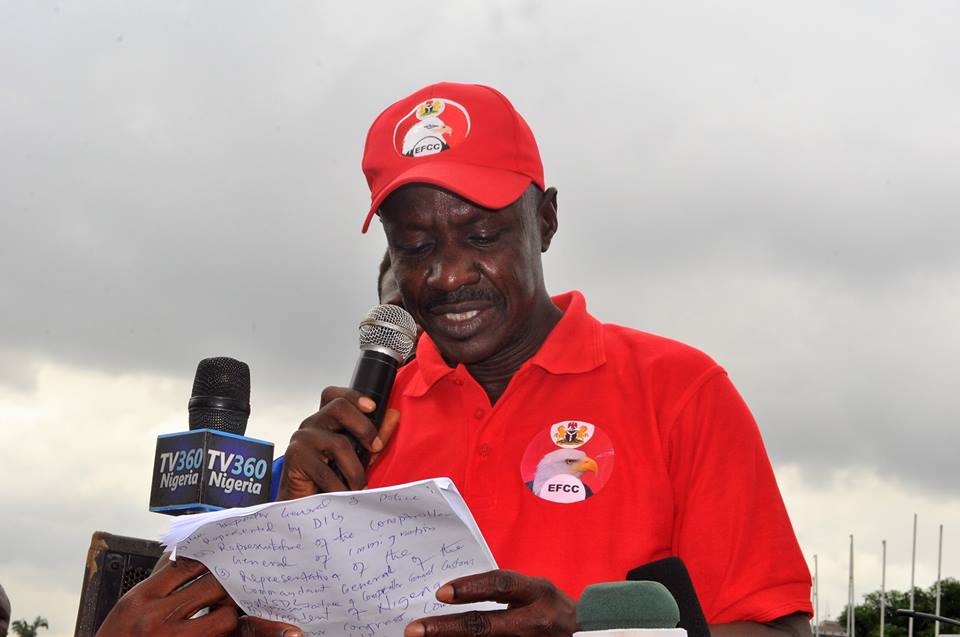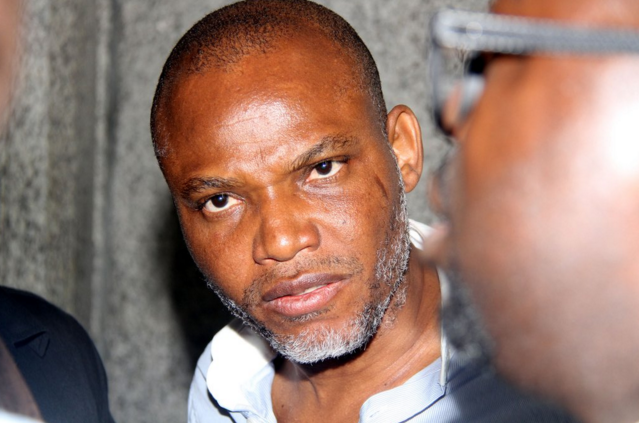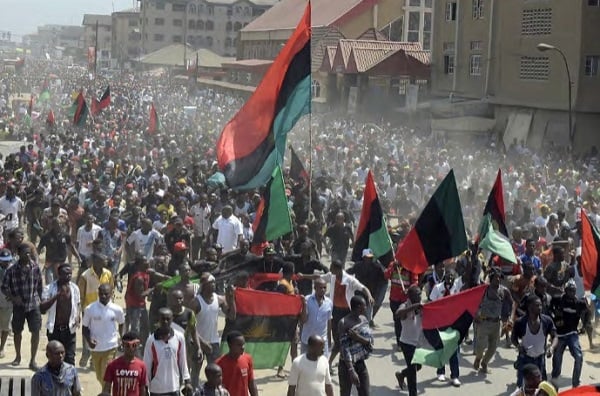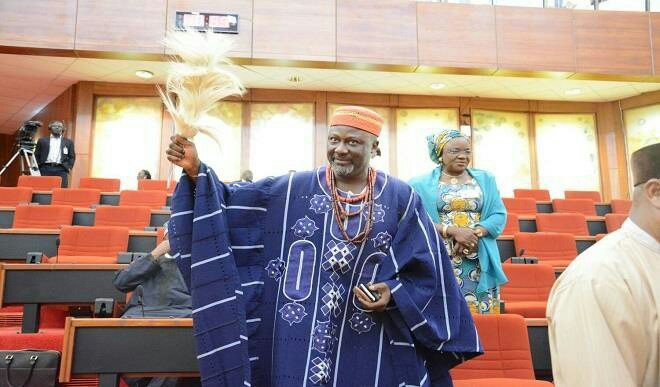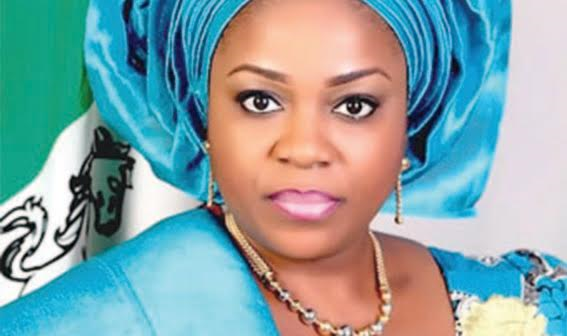When some of us who are privileged to be members of the commentariat and who some refer to as public intellectuals took exception to the way and manner that the anti corruption war of this administration was being executed, we were scornfully branded corruption apologists. But they were wrong because we are actually pragmatic.
And the popular axiom often relied on by anti corruption agencies which lash out against those who criticize their method is “when you fight corruption, it fights you back”.
So typically,those of us that disagree with their outdated strong arm tactics that seem to have been taken out of the books of the gestapos in Adolph Hitlers gulag days, are branded supporters of corruption and sometimes enemies of state.Nothing can be further from the truth as the disastrous outcome of the crude war on corruption has vindicated us.
Such attacks are often launched when the table is turned against anti corruption exponents, particularly when their victims get them exposed as also being culpable of corrupt practices.
Advertisement
Take the recent case of the suspended former secretary to the federal govt, SGF, Babachar Lawal and the Director of Nigerian Intelligence Agency, NIA.
Although, the report of the special panel set up by president Mohammadu Buhari and led by acting president Yemi Osinbajo is yet to be made public, the allegation and possibly indictment of the top govt officials is being regarded as triumph by the antagonist of the current modus operandi of the anti corruption war.
What this suggests is that the anti graft protagonists seem to be at the receiving end now.
Advertisement
Be that as it may, the value intrinsic in the recent initiative by president Buhari to be more introspective in his fight against graft just before his mid term score card was presented, in my view,marked a positive turning point for him and the govt that he leads and affirms mr president’s often advertised high integrity.
Before the presidency attained the current high moral ground , the ‘musical chairs’ so to speak, between it and the National Assembly, NASS over the confirmation of the appointment of Ibrahim Magu as chairman of the Economic and Financial Crimes Commission,EFCC was a very low point for govt.
In my calculation,there is a parallel between the battle of supremacy with the presidency and NASS over the confirmation of magu’s appointment to when Goodluck Jonathan’s govt endorsed the Governor’s forum election where Jonah Jang, then Governor of Plateau state, now a senator was assumed to have been elected over then Rivers state Governor Rotimi Amaechi, now a minister who won more votes in the contest that was conducted under the full glare of live television.
That unfortunate incident that presented then pdp leadership as moral reprobates, marked the beginning of the end of the pdp as the ruling party and indeed as a political party in Nigeria as the move diminished the integrity of the presidency under Goodluck Jonathan just as the continued retention of Magu as EFCC boss now splashes mud on the presidency under president Buhari’s watch.
Advertisement
In my view, there is severe moral hazard in endorsing a candidate who received less votes than his opponent as the winner of a contest and repeatedly presenting a candidate that the senate had rejected on several occasions for the same job and encouraging the person to remain on the job.
Be that as it may, I sympathize with the acting EFCC chairman, Magu because he seems to be a man with the zeal to cure Nigeria of the vice of corruption that has been plaguing the country since the creation of the geographical expression and I wish he did not get caught up in the vortex of power swirling around Aso Rock and NASS.
However, if president Buhari has absolute confidence in Magu’s personal integrity, as he seems, and perhaps justifiably so, he should withdraw him as chairman of EFCC and assign him an equally strategic position that has oversight role on corruption but does not require the approval of the National Assembly, NASS .
That way, mr president would, as the popular saying goes ‘eat his cake and have it’ and Nigeria’s nascent democracy would have been protected from being trampled as respect for the separation of power and rule of law would have been sustained.
Advertisement
Any contrary action, such as continuing to discountenance the relevance of the legislative arm of govt by retaining Magu, denigrates our constitution and does not augur well for the future of our democracy.
That fear is real because sooner or later, Governors at state levels would also start copying the presidency by flouting state houses of assembly resolutions and that would be a recipe for the imminent death of our democracy.
Advertisement
My heart also goes out to Officers and men of the anti crime agencies like EFCC, DSS and NIA, ICPC, CCT etc who put their lives at risk everyday in the course of trying to apprehend and arraign criminals locally and internationally.
But to reduce the risks that the operatives encounter , the authorities must rethink the methodology of crime fighting currently being operated from after-the-fact tactics to preventive methods. And this can only happen when security agencies start accepting criticism of the current tactics being deployed and strive to improve on existing strategies as no policy should be sacrosanct.
Advertisement
What’s wrong in being adaptive as opposed to being rigid?
Now and then, l read about the exploits of one assistant commissioner of police Kyari, who heads a squad in the police force named Intelligence Response Team, IRT.
Advertisement
My understanding is that the crack team that he leads operates straight out of the office of the inspector General of police, IGP and the rate of success in cracking criminal puzzles have been quite phenomenal. I recall that, it was Kyari’s team that cracked the infamous Cynthia Osokagu internet scam/murder case and a multiple of other complex crimes across the country.
Why is the task force so effective , one may wonder? Effective Information gathering and deployment of technologically advanced gadgets for surveillance which is the bedrock of effective crime fighting in the 21st century.
Such Officer’s should be given higher responsibilities and anti crime agencies should rely more on smart technology and plain clothes detective work of infiltration than the brick and mortar tactics of brute force .
Casting our minds back to when and how valuable political allies can become sacrificial lambs, Col Oliver North of Iran- Contra (Nicaragua) arms scandal comes into focus.
It may be recalled that in 1986, arising from the need to protect the president , col North, a national security council member was indicted and forced to resign in order to absolve the president from being guilty of breaching the constitution of the USA ,if he were to admit to being privy to a deal which had been legislated against by parliament in what is now referred to as Post Truth Politics.
And it all happened under the watch of Ronald Reagan, the 41st president of the USA in his second term .
In more contemporary times, Karl Rove, a political strategist and deputy chief of staff to president George W Bush , the 43rd president of the USA, had a similar experience.
Following the Democratic Party led Senate face-off with the Republican Party led presidency, mr Rove along with other key aides to then president George W Bush, were bombarded with subpoenas by Capitol Hill committees (legislators) for acts inimical to their interests and conduct unbecoming when Rove in particular was accused of pushing out attorneys that were pursuing electoral fraud cases that might harm Bush’s presidency.
Under intense pressure in 2007, Rove was compelled to resign even though he was the alter ego of president Bush and practically responsible for his two terms electoral successes.
As professor Alan Henrikson, emeritus professor of Diplomatic History , Fletcher School of Law Diplomacy, once posited “History is the central intelligence of statecraft”.
In the light of the above any forward thinking govt has to learn from history by following global best practice.
As l have argued in numerous articles, the blame for not being innovative but staid in governance can not just be laid on the door steps of president Buhari, but on the relevant ‘husband men’ who should know better.
With respect to the crusade against graft, the presidential action committee against corruption, led by Itse Sagay, a professor of law and renown rights activist which should have advised the president accordingly, is a culprit.
Rather than stabilize the polity by making respect for the separation of powers in our constitution, priority action , it appears the committee has been more interested in grandstanding against the legislative and judicial arms by encouraging the presidency to go against these independent arms of govt in ways that create anarchy in governance.
As a result there is more tension points than necessary for government.
And it can not be denied that such unnecessary tensions have been contributing to president Buhari’s health challenges.
Also, by exaggerating the levels of corruption in Nigeria at the birth of this administration , the expectations of how much would be recovered were very high hence the N60 billion that govt claims to have been recovered from treasury looters, during its mid term report did but elicit paroxysms of excitement as it pales into nothing compared to trillions said to have been stolen. For instance,when prof Sagay claims that N1.35t was stolen by just 55 govt officials (outside of the trillions lost to fuel subsidy scam and $2.1b so called Dasukigate) between 2009 to 2015, why would Nigerians be satisfied that only half of Sagay’s claim has been recovered?
Besides that, throwing up such mind boggling figures into the public arena also has negative implications on Nigeria’s ability to borrow internationally.
Unsurprisingly, today Nigerian banks scarcely have Naira or dollar lines to fund imports.
And I reckon that even the authorities were under the illusion that much more of the so called looted funds would be recovered and used to run the govt, which is probably why they did not bother thinking of how to dexterously manage the volatile Niger delta region-the treasure trove of the nation from where it would harness funds to run govt.
But as it turned out, even plugging the so called financial leakages in the public sector through the introduction of Treasury Single Account, TSA has not proven to be such a great money saver as envisaged , hence the resort to borrowing from the domestic financial services sector and abroad to augment cost of governance. No wonder the Debt Management Office,DMO,recently reported that Nigeria’s debt has gone up by N7.1t (from N12.06-N19.16) between 2015 and 2017-which is two years of this administration. It’s also little surprise but heartbreaking that N1.84t (higher than the sum appropriated for capital projects) is set aside for debt servicing in budget 2017
Of course, I’m not by any stretch of imagination insinuating that corruption in Nigeria is a hoax. But all l’m saying is that corruption levels are clearly exaggerated to extract maximum political pound of flesh from the outgone administration.
Unfortunately, without realizing that it would turn around to be an albatross, govt and its agencies were unwittingly defaming Nigerians and Nigeria through their damning utterances about alleged horrendous levels of corruption in the country.
In a twist of fate, the hype that was meant to boost its rating in the eyes of the electorate , has now come back to haunt the govt in power as the country’s image has been severely tarnished by the painting of the country black with a tarred brush. Former British PM, David Cameron and ex USA Secretary of State , John Kerry have capitalized on that self inflicted injury to denigrate Nigeria and Nigerians at various international fora-the Anti corruption summit held in London and World Economic Forum, WEF annual general meeting,last year.
Ironically, after playing to the gallery to boost public approval,the chicken seems to have come home to roost for the ruling party APC and president Buhari’s administration as scales have literarily dropped from the eyes of Nigerians who have now come to the realization that the mind boggling volume of funds claimed to be been stolen might be a hoax.
Another tipping point was the initial lack of clarity on whether or not president Buhari intended to retain former president Umaru Yar’Adua’s policy on amnesty and the pussy footing was the near crippling of the economy when militants unleashed mayhem in the oil/gas infrastructure that hampered oil production and effectively stopped inflow of foreign exchange for the country.The consequences of the foregoing and the horrendous corruption allegations by govt officials against fellow Nigerians resulted in the flight of investments out of the country and the slow down, if not cessation of flow of funds into the economy culminating into the current recession and lack of credit lines to banks and businesses.
The foregoing scenario largely accounts for the exorbitant cost of funds in the money market and the hyper exchange rate of Naira to foreign currencies.
For the sake of emphasis , my grouse is that rather than prioritize setting up a robust economic team to steer the ship of state that was headed for the rocks in the light of sharp drop in oil price due to the profligacy and graft of the outgone administration, anti corruption war was given priority and pursued with the greatest vigor, to the detriment of all other critical sectors.
But stemming from the somewhat nihilist, zero sum or the devil may care approach to governance such as the continued detention of the likes of the cleric El Zazaky and Ahmed Dasuki former NSA in the past 24 months of taking the reins of power which has created too many tension points in the polity, Nigerians don’t buy the current diatribe from information minister, Lai Mohamed that they are being held for their personal safety. So they should be released forthwith. At the worst, let the duo give undertaking to security agencies that they are seeking their liberty at their personal risk.
That gesture, in my view would help the APC led govt win back some of its core support base now waning.
The growing restlessness from the party’s support base is partly the reason the announcement of a mere sum of N60 billion as the amount recovered from treasury looters (according to reports in the media credited to minister of justice, Abubakar Malami) was tantamount to pouring cold water on the populace whose expectations have been much higher.
Owing to the views that l just espoused, l stand the risk of being misunderstood by anti corruption agencies and as such they may reaffirm their maligning of my character as a defender of corrupt people and thus become a target for a witch hunt, which would be wrong and unfortunate.
Yes, their style of executing the anti corruption mandate conflicts with my concept of combating corruption in the 21st century .What that simply means is that we have divergent points of view and that can not be a ground for victimization.
But then ,evidence abound that the agencies often resort to such archaic and crass tactic to stifle critics.
Why attack the messenger instead of critically reviewing the message ?
Given their penchant for spoiling for a fight where there is none, but merely in response to high adrenaline in their system, the anti graft agencies are now practically at each other’s throat, having completed the full circle of hauling mainly politicians from the ousted regime and their business associates into jail ostensibly on corruption charges that often turn out to be phantom.
When they were done with politicians and surrogates , the battle thirsty security hounds fashioned their gaze on the top echelon of the legislative arm of govt who they arraigned in court on corruption charges which are also yet to be proven.
After that, they targeted the judiciary by arresting Supreme Court judges at mid night in gestapo style and locked up some Senior Advocates in their cars within court premises on allegation of corruption or collusion. Now, some of the cases against the justices have been dismissed in court for lack of merit with most of them returning to their beats now. The financial services sector and the media were not left unscathed as their leaders were also hauled into detention and inflicted with the scourge of anti corruption pandemic that was spreading round the country like a virus until it rendered the economy and polity comatose.
After the unprecedented onslaught against the second,third and fourth realms of the estate and ruffling of feathers in the banking sector(funds only got frozen without inflowing into govt coffers ) , the anti corruption agencies then literarily started stabbing each other from behind -DSS probing the EFCC, and NIA being investigated by the EFCC and DSS being scrutinizing by the EFCC and vice versa.
Finally, the security agencies show of shame reached its highest crescendo with the foreshore ,ikoyi, lagos apartment haul of $43m (N15b) whose ownership is yet to be ascertained as claims and counter claims have so far impeded the investigations.
Incredibly, the task before the presidency now is how to save anti corruption/crime agencies from each other. And that is such an athetesis for the much vaunted anti corruption fight.
Clearly, compared to the hiatus generated by the naming, shamming and hauling into jail of suspects (without beneficial value) ,owing to the sheer size of the looted funds recovered, whistle blowing policy benefits have trounced the outdated Washington Consensus style earlier adopted by the EFCC and DSS.
So you can imagine the tremendous gains that await Nigeria, if the use of technology is adopted to combat graft and further innovativeness is promoted through open mindedness in law enforcement community.
In my considered opinion, nothing beats the principle of prevention is better than cure as recently espoused by the likes of senate president, Bukola Saraki amongst others.
Why should Nigerians be regaled with after-the-facts gloating by law enforcement agencies who boasted of recovering elephant size looted funds but only able to present an ant’s size after 24 months?
For real change to happen, costs of doing govt’s business must be drastically reduced. And l’m talking about cutting down on over valued contracts and bloated personnel costs. A situation whereby only N1.8t has been invested in capital projects and a whooping N8t has gone into recurrent expenditures between June 2015 and February 2017, (BudgeTi figures) change is likely not in the horizon.
Leveraging technology, Nigeria can reduce the interaction between public funds and human beings which has been the missing link in the anti corruption crusade template.
And that’s why the electricity power sector which is an enabler for technology should be decoupled from the works and housing ministry, as it is currently constituted , so that it can be accorded special attention.
Going back to measures to protect funds from fraudsters;has anybody wondered how Dangote with multiple investments in major industries,Mike Adenuga of GLO telecoms and Cornoil or Jim Ovia of Zenithbank and Quantum petrochemical, or Tony Elumelu of UBA bank and Transcorp group, prevent their staff from looting their funds?
They do so by instituting proper risk management systems that deter fraud ,and the operating word here is prevention, which is better than cure. But that is not to say that fraud can be totally eliminated.
In fact, the CBN recently reported fraud of N2.19b in the banking sector in the 2016 financial year, despite preventive measures put in place to technically ring-fence funds in the financial services system. Indeed, the loss to frauds in Nigeria is not significantly worse than what’s reported in the UK or USA financial services systems.
The point that l’m making is that in any system, money would be lost, but authorities can always strive to be ahead of the nefarious ‘ambassadors’ who want to steal from our common patrimony, with technological knowhow.
To think that we can have a crime free society, is false and to believe that we can arrest and jail all thieves and those who have semblance of it, is akin to living in a fools paradise.
That’s why it was unwise to make anti corruption the cardinal agenda of govt (catching and locking up all the thieves) at the expense of salvaging an economy that was already on a slippery slope.
It is that colossal misadventure that is now being corrected with the introduction of the Economic growth and Reconstruction Program, EGRP instituted a few months ago, the executive bills on Ease of Doing Business and the Industrial Policy and Competitiveness Advisory Council recently inaugurated by acting president,Yemi Osinbajo.
With the deluge of legislations being considered or already passed into law by NASS to facilitate business and the impressive number of committees being set up through executive orders by the presidency to oil the wheel of economic development in the last four, 4 months ,the economy appears to be taking preeminence, which is a welcome development.
The costly mistakes which pushed the nation’s economy for the first time in twenty five,25 years into recession, are lessons that the nation has learnt the hard way.
So let’s hope that the hard lessons from the mistakes of the past two, 2 years have been internalized, so that our policy makers can be more circumspect and pragmatic while being less emotional in policy formulation.
Onyibe, a development strategist, an alumnus of Fletcher school of law and diplomacy, Tufts university, Massachusetts, USA and a former member of Delta state cabinet, sent this piece from lagos.
Views expressed by contributors are strictly personal and not of TheCable.
Add a comment
